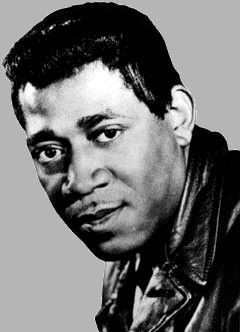
I heard James Carr sing for the first time a few nights ago on the radio. Well, to be accurate, I wasn’t listening to the actual radio, but to an archived radio show, on my computer, played through a good speaker system.
To be even more accurate, I was listening to a replay of my favorite radio show (actually, the only radio show I listen to), the Rhythm Revival on public radio station WMNF in Tampa, Fla. It’s hosted by the Rev. Billy C. Wirtz and Marvelous Marvin Boone, whose combined musical knowledge is dazzlingly encyclopedic and thoroughly enjoyable.
But I digress.
As part of their regular Friday afternoon gig showcasing great old music that most people have probably never heard, they played the powerfully soulful 1967 song “Pouring Water on a Drowning Man” by Carr, who died in 2001 at the age of 58, after a relatively brief career creating this gorgeous music.
After that tantalizing introduction, I found more information on Carr’s career and more of his music in that magic box called the internet. For starters, you can still buy (or stream) “The Complete Goldwax Singles of James Carr,” the 28 soul-filled songs he recorded for the now-defunct Goldwax label in the 1960s, on Kent Records, which is now owned by Ace Records in England. Goldwax, by the way, seemed to be tied to the fate of Carr, and it folded in 1969, at the end of Carr’s run of powerful single recordings.
Naturally, I listened. I’ve heard some great soul men in my time, but Carr’s gritty, passionate vocals grabbed me at that purely instinctual level where the artist rips the music from the bottomless depths of his tortured soul and pours it into yours. Yes, it’s that good.
Most of these songs are slow and steamy, overflowing with heartache and desperation, each one delivered as intensely as though it could be his last. Even the uptempo numbers are furiously passionate. I don’t know who the musicians are all on these recordings, but they groove in complete sympathy with the power of Carr’s rich voice, which he brought with him from his youthful days singing in his pastor father’s Baptist church choir. He’s another of the many great soul singers who crossed over from the sacred to the secular with their music, bringing with them it’s fervor, if not its message.
In fact, Carr was a member of the gospel group The Redemption Harmonizers (along with another potential great in O.V. Wright) that drew the attention of Roosevelt Jamison, a singer/songwriter who would become James’ manager.
The Goldwax label is where Carr recorded the music the rivaled that of Wright and Otis Redding with its emotional intensity. After his first few sides, he recorded what would become his signature song in 1966, “The Dark End of the Street.” It’s been covered by a variety of artists, but none really match the sheer soul power of Carr’s version. And the lyrics themselves were appropriately dark, matching his deep soul interpretation: “At the dark end of the street/That’s where we always meet/Hiding in shadows where we don’t belong/Living in darkness to hide our wrongs.”
Sadly, Carr was troubled with mental health problems — some reports indicate bipolar issues — and his career never really flourished, despite comeback attempts in the late ’70s and the ’90s.
However, his recorded legacy, especially on the Goldwax sides, is quite simply, magnificent. The sheer power of his voice is magical.
Just when you thought you couldn’t reach any deeper into the heart of soul music, James Carr sweeps out of that primeval place where soul music lives and takes you there with him. You should make the trip.
Sweet, sweet soul music. There’s nothing quite like it.
Here’s an informative and interesting article on Carr’s life from the Soul Cellar web site.
Here’s an audio version of “Dark End of the Street,” followed by a much later live performance: